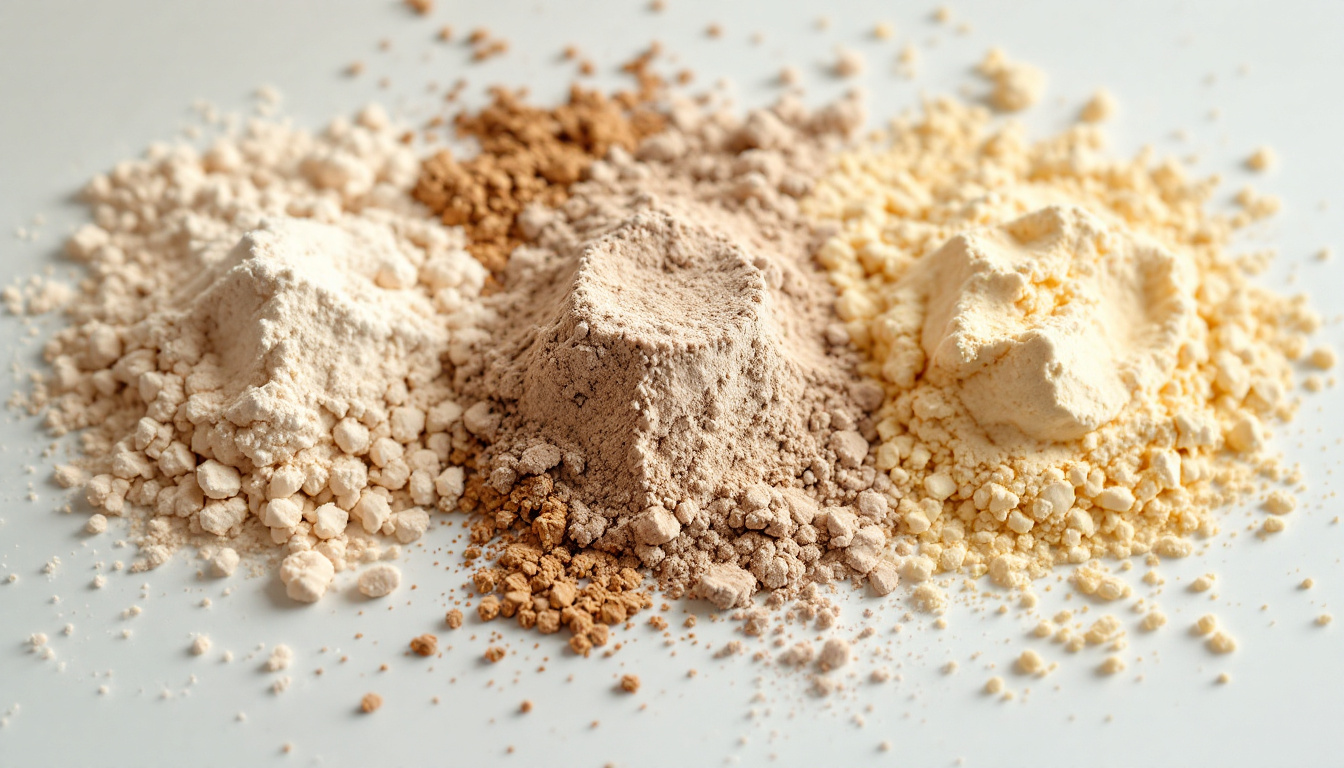When you think of protein powders, you might immediately picture those ubiquitous tubs lining the shelves of health stores, promising muscle growth and recovery. But what truly makes a protein powder stand out in the crowded market? Let's delve into the essential components that define a high-quality protein powder.
Understanding Protein Sources
Protein powders come from various sources, each with its unique benefits and drawbacks. The source of protein is a critical factor in determining the quality of the powder.
Whey Protein
Whey protein is perhaps the most popular choice among fitness enthusiasts. Derived from milk, it is a complete protein, meaning it contains all nine essential amino acids. This makes it an excellent option for muscle repair and growth.
Whey is also known for its quick absorption rate, which is why it's often recommended post-workout. However, those with lactose intolerance might need to consider alternatives.
Plant-Based Proteins
For those seeking a vegan or lactose-free option, plant-based proteins like pea, hemp, and brown rice are excellent choices. These proteins are often combined to ensure a complete amino acid profile.
Plant-based proteins are also rich in fiber, which aids digestion and provides a feeling of fullness. This makes them a great option for those looking to manage their weight.
Evaluating Nutritional Content
Beyond the protein source, the nutritional content of a protein powder is crucial. A good protein powder should offer more than just protein.

Macronutrient Balance
Look for a protein powder that provides a balanced macronutrient profile. This means it should have a reasonable amount of carbohydrates and fats, which are essential for energy and overall health.
Some protein powders are specifically formulated to be low in carbs and fats, catering to those on specific diets like keto. However, ensure that these powders still meet your nutritional needs.
Micronutrients and Additives
High-quality protein powders often include added vitamins and minerals, enhancing their nutritional value. These micronutrients can support various bodily functions and improve overall well-being.
Be wary of powders with excessive artificial additives, sweeteners, or fillers. These can detract from the health benefits and may cause digestive issues for some individuals.
Assessing Digestibility and Absorption
The digestibility and absorption rate of a protein powder are vital for its effectiveness. A good protein powder should be easy on the stomach and efficiently utilized by the body.

Enzyme Fortification
Some protein powders are fortified with digestive enzymes, which aid in breaking down the protein for better absorption. This can be particularly beneficial for those with sensitive stomachs.
Enzymes like protease and bromelain are commonly added to enhance digestibility, ensuring that your body can make the most of the protein consumed.
Bioavailability
Bioavailability refers to the proportion of protein that is absorbed and utilized by the body. Whey protein, for instance, is known for its high bioavailability, making it a preferred choice for many.
Plant-based proteins may have lower bioavailability, but this can be improved by combining different sources to create a complete amino acid profile.
Considering Taste and Mixability
While nutritional content is paramount, the taste and mixability of a protein powder can significantly impact your willingness to consume it regularly.
Flavor Options
Protein powders come in a variety of flavors, from classic chocolate and vanilla to more exotic options like matcha or salted caramel. Choose a flavor that you enjoy, as this will make it easier to incorporate into your daily routine.
Some brands offer unflavored options, which can be ideal for those who prefer to add their own flavorings or mix the powder into recipes.
Mixability
A good protein powder should mix well with liquids, whether you're using water, milk, or a plant-based alternative. Poor mixability can lead to clumps, which are unappealing and can affect the texture of your drink.
Look for reviews or try samples to ensure that the protein powder you choose dissolves easily and provides a smooth consistency.
Price and Value
Finally, consider the price and value of the protein powder. While it's tempting to opt for the cheapest option, it's important to weigh the cost against the quality and benefits offered.
Cost-Effectiveness
Evaluate the cost per serving rather than the overall price. This will give you a better idea of the value you're getting for your money. A more expensive powder might offer superior quality and nutritional benefits, making it a worthwhile investment.
Consider purchasing in bulk or during sales to reduce costs without compromising on quality.
Brand Reputation
Research the brand's reputation and read customer reviews. A reputable brand is more likely to offer a high-quality product that meets your needs.
Look for brands that are transparent about their sourcing and manufacturing processes, as this can be an indicator of their commitment to quality.
In conclusion, a good protein powder is defined by its source, nutritional content, digestibility, taste, and value. By considering these factors, you can find a protein powder that supports your health and fitness goals effectively.




